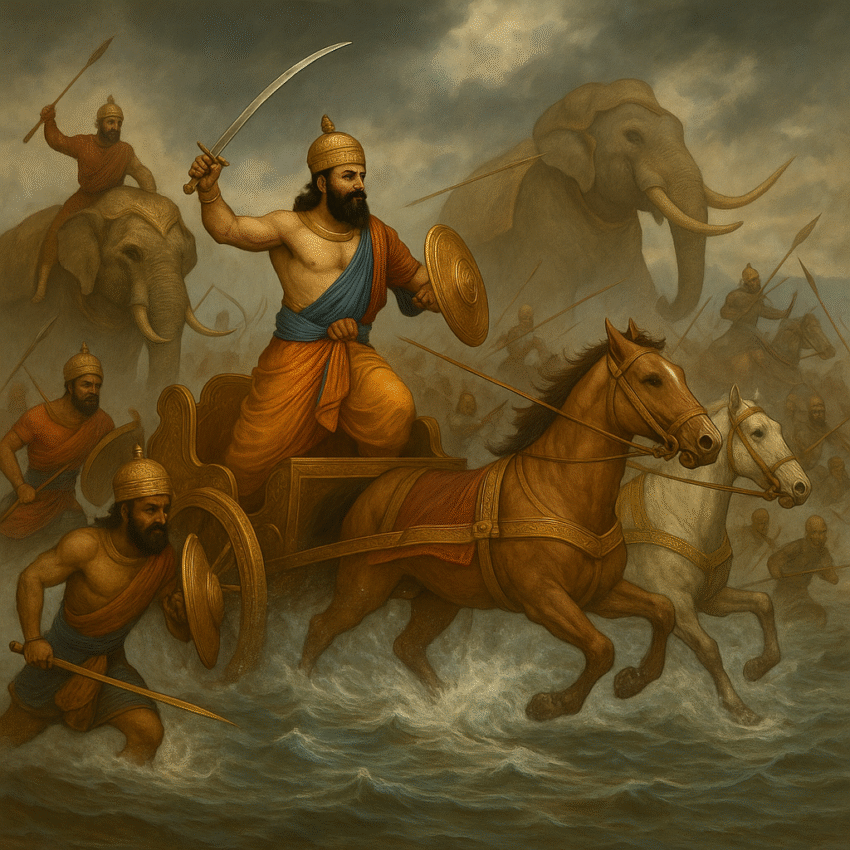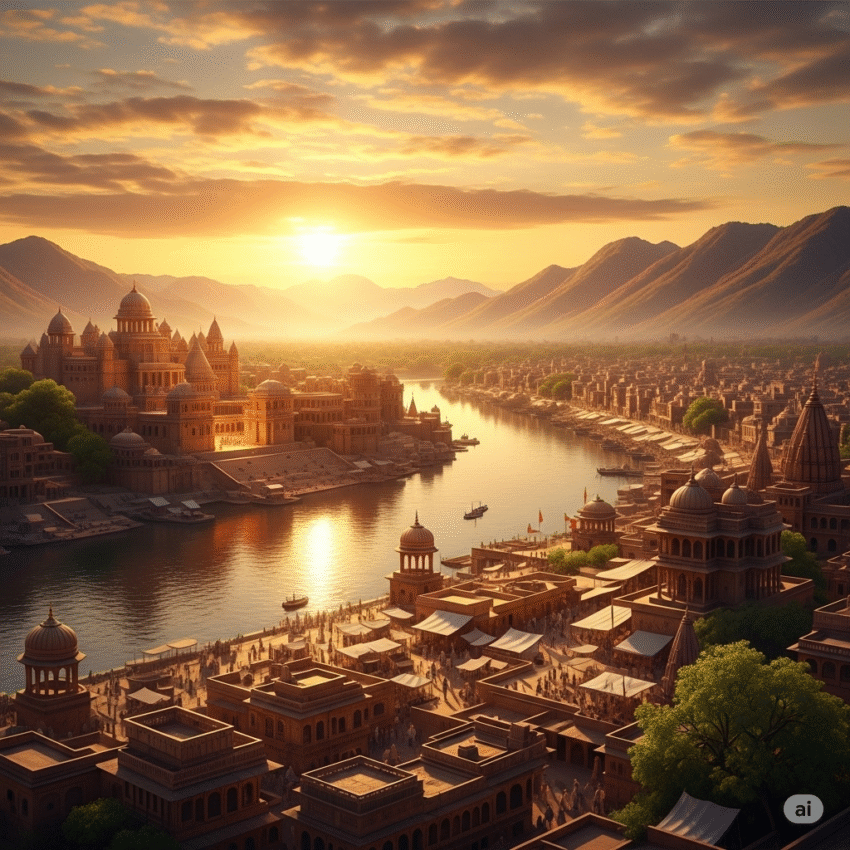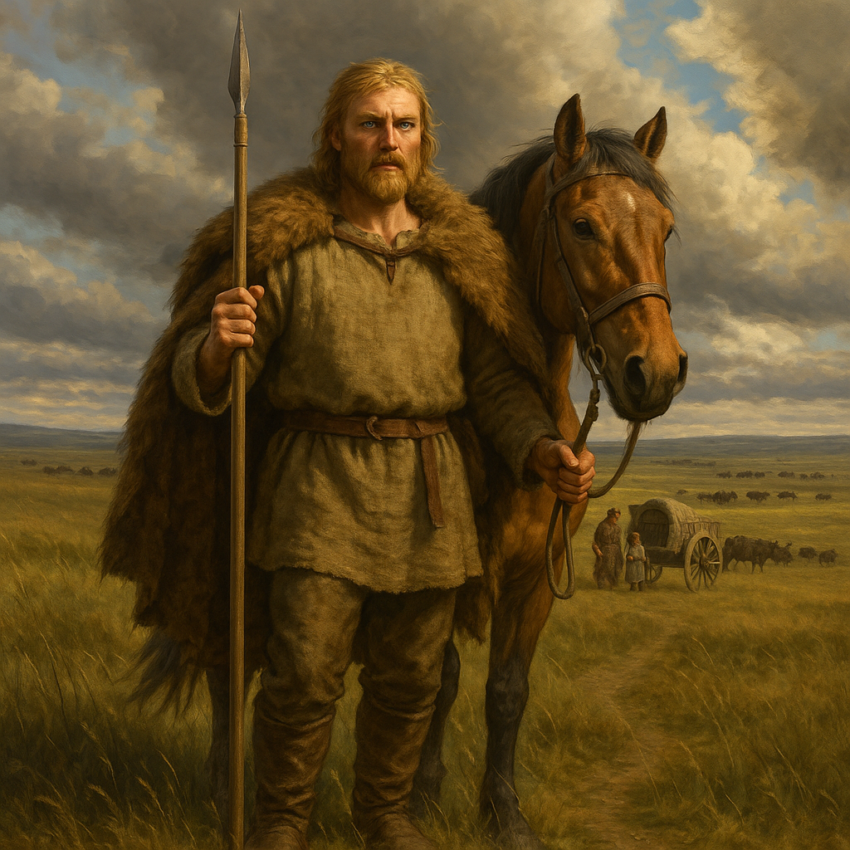You want to read the article as text? – scroll down King Sudas and the Battle of Ten Kings: Ancient India’s Most Documented Conflict 🔥 Key Historical Fact The Battle of Ten Kings (Daśarājñá) stands as the most historically significant conflict preserved in Rigvedic literature, representing a pivotal moment when personal rivalries, political ambitions, and…
Month: June 2025
Ancient Hastinapura: A capital lost in mist
Ancient Hastinapura: A Historical and Archaeological Perspective A Journey Through Three Millennia of Indian Civilization Ancient Hastinapura stands as one of India’s most significant archaeological and historical sites, representing a continuous thread of human civilization spanning over three millennia. Located in modern Uttar Pradesh, this ancient settlement provides crucial insights into the development of urban…
Ancient DNA Reveals Surprising Migration Secrets – Indus-Saraswati civilisation
Recent advances in ancient DNA technology have revolutionized our understanding of Indo-European migration into South Asia, moving scholarly consensus away from invasion models toward a nuanced framework of gradual migration and cultural integration. This comprehensive analysis examines genetic, archaeological, and linguistic evidence surrounding the relationship between Indo-European arrival and the decline of the Indus Valley Civilization. The 2019 breakthrough studies, including the first successful extraction of Harappan DNA from Rakhigarhi, reveal a complex three-source model for South Asian populations that challenges earlier binary frameworks. Rather than violent conquest, the evidence supports a process where steppe ancestry arrived between 2000-1500 BCE and integrated with existing populations, contributing to but not replacing the genetic foundation of modern South Asia. The Indus Valley Civilization appears to have declined due to internal factors, with its populations forming the largest component of later South Asian ancestry. This modern synthesis acknowledges both migration realities and the crucial role of indigenous populations in shaping South Asian civilization.


